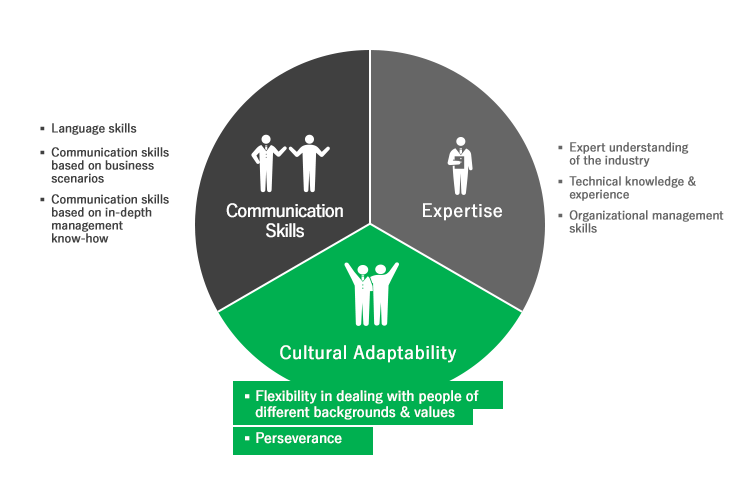Intercultural Management
Strengthening cultural adaptability / training employees to work abroad and following-up /
setting up interships in emerging countries
Strengthening cultural adaptability / training employees to work abroad and following-up /
setting up interships in emerging countries
People with strong values who can build good relationships within different cultures needed due to overseas expansion and labor shortages in Japan. Foreign language training ( including English ), and business skills training are carried out for the management of both domestic and international organizations.
Despite all this training, Japanese business people have difficulty building productive relationships with foreign staff and growing the business. Why is that?
Skills required for Japanese to succeed in a global business environment

Japanese companies often expect foreign employees to behave based on Japanese values simply because they are employed by a Japanese company. Cultural values have been unconsciously programmed and learned since birth. The behavior you see is only the tip of the iceberg. Understanding this simple fact is important when communicating with people from different cultures.
For example, some people believe technical people can communicate with each other as long as they share the same technical knowledge, which is not always true. In some countries dissatisfaction with Japanese staff caused by the absence of personal communication can lead to a decline in motivation or staff turnover.
Japanese business people working overseas need to understand and adapt to differences in cultural values to prevent such issues from occurring.